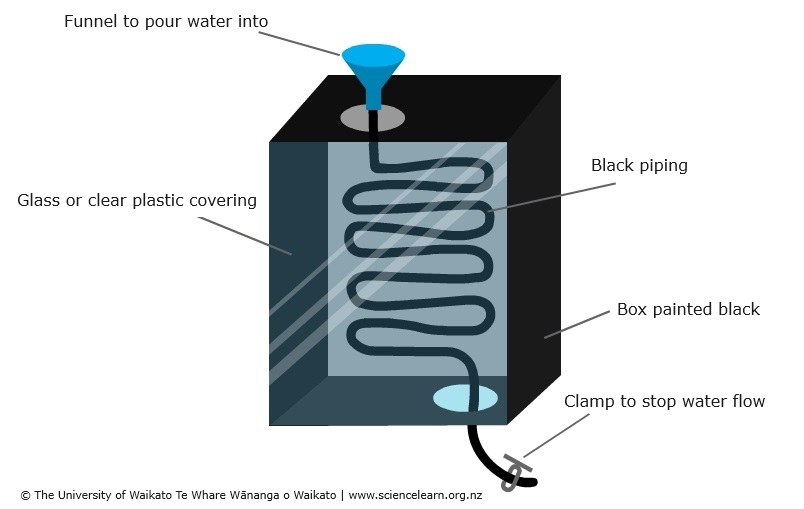In this activity, students explore the transformation of the Sun’s energy into heat energy through several experiments.
By the end of this activity, students should be able to:
- explain that different objects absorb different amounts of light energy and that this gives them their various colours
- explain that dark coloured objects absorb more light energy, which transforms into radiated heat energy (infrared rays), and black coloured objects are the best for absorbing light energy and radiating heat energy
- show that materials that appear light in colour or have a shiny and smooth surface reflect solar energy best
- show there are ways of trapping the Sun’s heat energy (for example, using dark coloured objects, insulation, creating a greenhouse effect, facing objects to the Sun for maximum exposure, reflecting more light onto a given area).
Download the Word file below for:
- introduction/background notes
- instructions on what you need and what to do
- extension activities.
Nature of science
Scientists and technologists use their knowledge of the natural and physical world to make life more comfortable for us, for example, houses can be heated through solar water heaters or houses can be designed to make use of the Sun’s energy for heating.
Related content
Teachers should read the articles Using solar energy, Solar energy and What is energy? for a more complete understanding.
More activity ideas
In Investigating heat absorption, students use thermometers inside water-filled soda bottles to investigate how dark and light colours affect heat absorption.
Students can further explore the transformation to heat energy through these hands-on activities Using heat energy and Exploring solar power. Additional teacher resources include Alternative conceptions about energy and this unit plan. The activity Māui and the Sun uses the Māori legend to introduce the concept of harnessing the Sun as solar energy.

